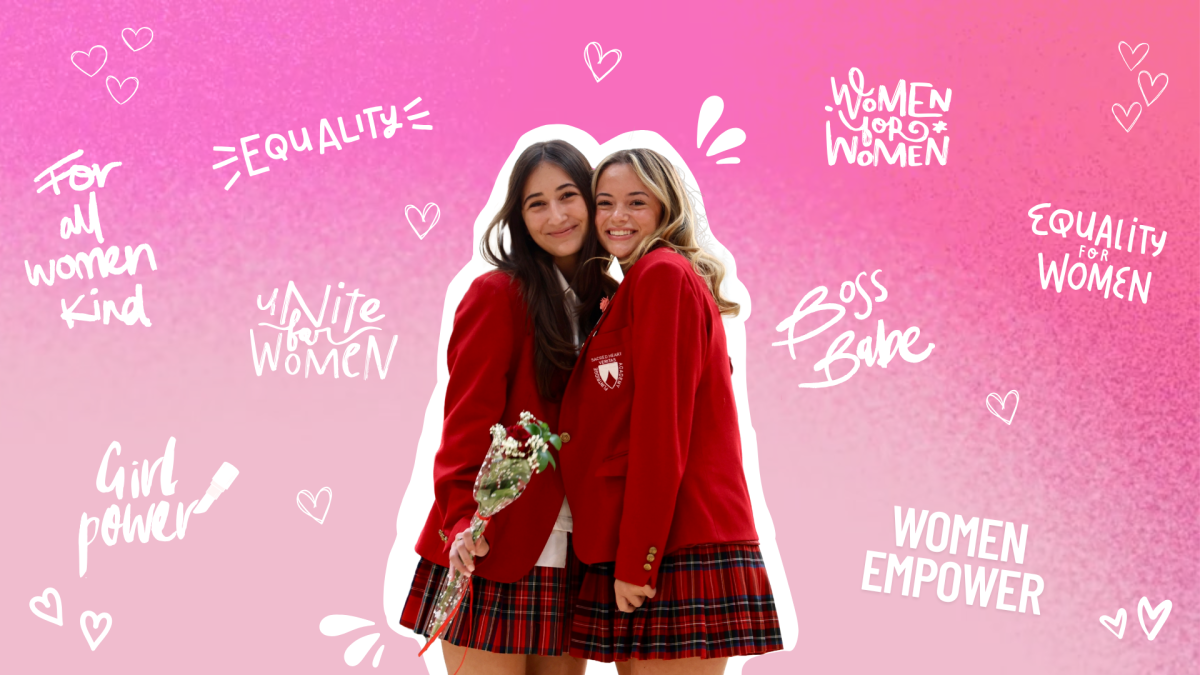This year is off to a fast start, and March has arrived, bringing Women’s History Month with it.
From a young age, I have always appreciated women’s outstanding contributions to society. Strong women have been great in my life. I grew up with a hard-working mother and a sister who fought for everything she believed in. I am also blessed to have a wide range of friends who are brilliant young women who inspire me each day.
Learning about women activists like Emma Watson, Greta Gerwig, and Amanda Gorman and hearing their stories would send a chill down my spine. After learning what women were fighting for and listening to their anecdotes, I knew I was a feminist.
Because of these heavy influences, I have always been passionate about gender conversations and feminism. But being a feminist at such a young age did not always treat me well.
I remember vividly a day in fifth grade in my physical education class when I was in the locker room with some other classmates. Somehow, the discussion of strength between men and women came up, and one of the girls said that men were stronger than women. Everyone agreed with her, and I remember being repulsed by the idea that a girl my age would willingly say that. I internalized this as “men are better than women.” This moment sparked my awareness of gender inequality.
Strength is not just a physical attribute but falls under several categories like emotion and intellect. Women display these qualities in different ways which should not diminish their level of strength.
I have never understood the imbalance between men and women in society. Whether in pay, opportunities, or expectations. I’ve always viewed our genders as equal; men and women can be just as strong as each other, we can be just as smart as each other, and we most definitely can treat each other as equals.
Over the years, I’ve heard other off-putting comments aimed at girls my age and women. I’ve seen with my own eyes how women have been treated differently and pushed aside because of our sex.
Strict dress codes in schools often reinforce outdated gender norms, limiting the way students express themselves in professional settings. Since elementary school, I’ve always worn a uniform with a strict dress code. I’ve always liked wearing one because it makes getting dressed in the morning easier. My uniforms have consisted of (usually) a colored polo and a pleated skirt.
However, I’ve heard some upsetting remarks about these strict dress codes. School administrators often emphasize long skirts as “refined and professional,” claiming they prepare students for the professional world. While I understand that a dress code is meant to maintain a respectful and professional atmosphere at school, insisting that a long skirt is the only way to embody professionalism seems outdated.
Purl, a Pixar short film distributed by Disney, captures the reality of women working in male-dominated fields. Purl, a pink ball of yarn, does not fit in with her new work environment. Purl changes her personality and looks to resemble her white male coworkers and is instantly accepted.
This short film shows how traditional ideas of professionalism often require women to adhere to outdated norms. This relates to dress code discussions: insisting that a long skirt embodies respectability reinforces a rigid, gendered standard, much like the way the corporate environment in Purl does.
The criteria for judging professionalism should be our skills, conduct and work ethic, not the length of a skirt. A more flexible dress code would allow us to be prepared for a modern professional world without these gendered limitations.
Additionally, to address this inequality problem, I believe there should be more gender conversations in school. Not just in high school and college but in elementary school, too. Gender inequality is not born in every generation but instead is usually taught.
Teaching gender early is crucial in breaking down these harmful stereotypes. We are not helping our future generations by ignoring this problem.
Recently, at FSHA, more gender conversations have occurred in the classroom, where we discuss feminist ideas through coursework and discussion.
In my AP English Language class with Dr. Gero, we recently reviewed “We Should All Be Feminists” By Chimamanda Adichie, which allowed us to discuss gender in a comfortable setting where we shared our personal stories and feelings.
Something that struck me during this reading was when Adichie talked about a story of two siblings, a boy and a girl a year apart. The brother was hungry, and instead of making himself food, his mother told his sister to go and make him some food.
Adichie talks about how surprising this was to her, not just because of the gender expectation in the household, but because the sister was the only one who knew how to cook.
This is how gender norms are taught to new generations. If we put gender expectations on both boys and girls, we will never grow into a better society and instead repeat the same mistakes.
During my U.S. History class with Dr. Kim, we learned about a crucial historical event: the women’s suffrage movement. The suffragettes fought for the right to vote and eventually gained it in 1920.
This was one of my favorite lessons, and also one of the saddest because it shows the long struggle for equality and how activism can lead to justice.
In my Journalism class with Mr. Tercek, discussions of current events and pressing issues are constantly coming up, and we are kept up to date with what’s happening in the real world.
These conversations are crucial for a change in our society and determining how we can improve as individuals.
FSHA does a good job of incorporating these conversations into our curriculum, and I feel privileged to have such dedicated educators who make these topics essential during class discussions.
I hope other schools continue spreading awareness, as our developing brains need to be taught these important topics to break gender norms.
My perspective on feminism has grown immensely over the past six years. Looking back, I realize my frustration in fifth grade was just the beginning of my awareness. At the time, I couldn’t fully explain why the comments of my peers bothered me, but now I understand that it was a reflection of deep-rooted gender stereotypes.
Since then I’ve realized how feminism isn’t just about proving strength but questioning expectations, breaking down barriers and ensuring that all people have equal opportunities.
Feminism means a great deal to me, and equality should never be up for debate. Feminism doesn’t end when March does. I encourage our world to keep learning, keep challenging stereotypes, and keep advocating for equality.


